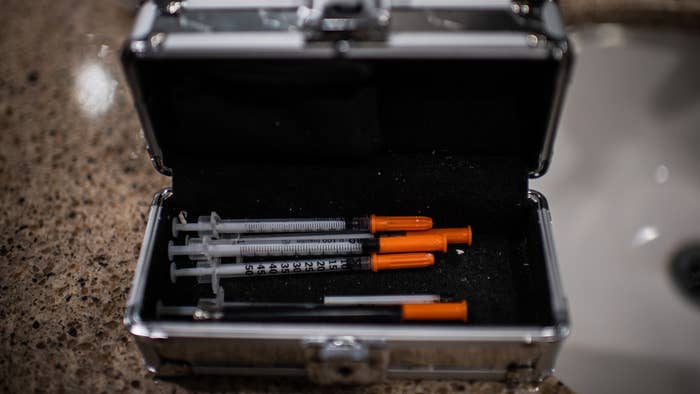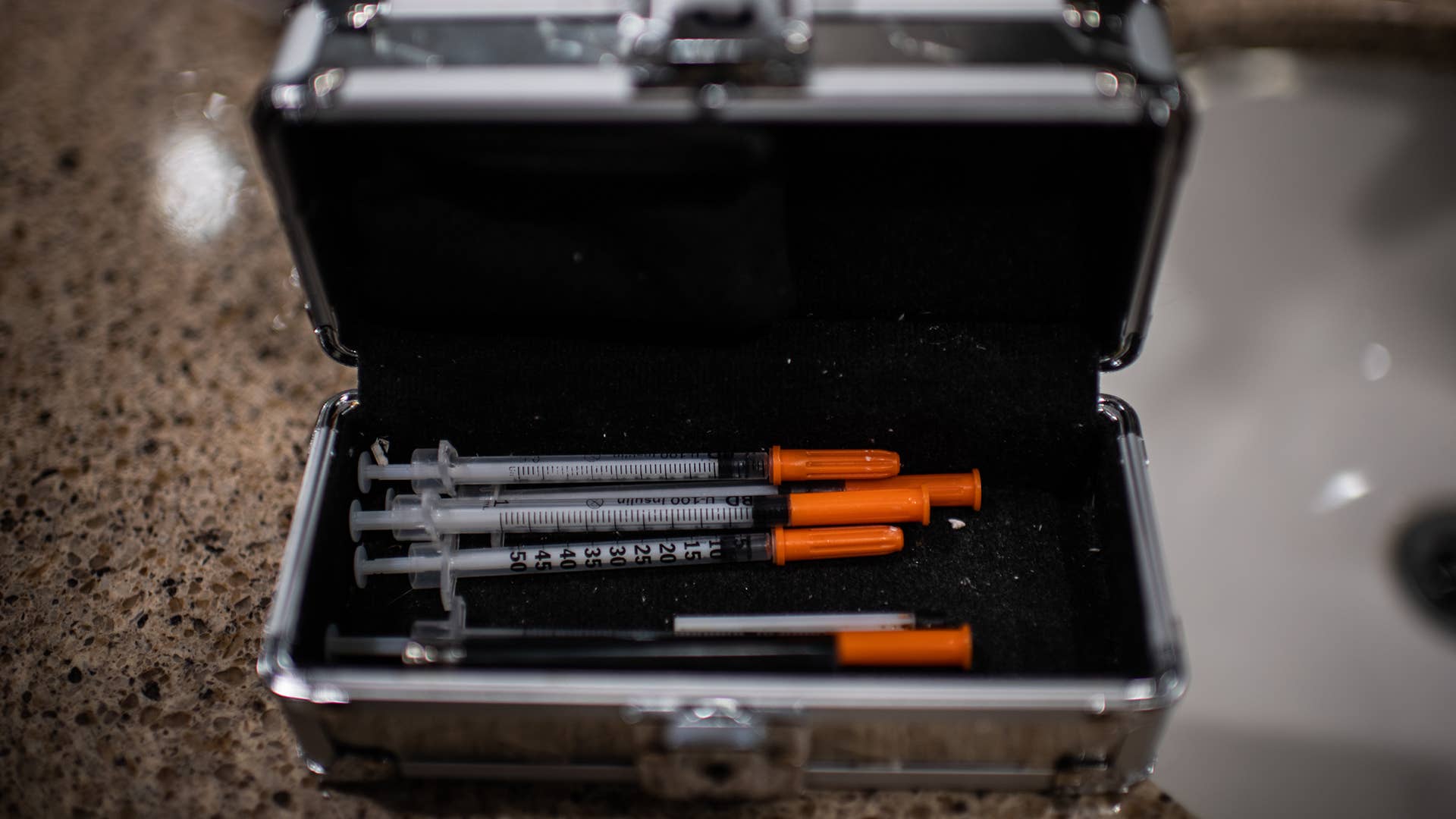
A recent video released by the San Diego County Sheriff’s Department has been called into question after it showed a rookie cop allegedly overdosing on fentanyl.
The clip, which was captured on July 3 but shared online earlier this month, appears to show Deputy David Faiivae in a parking lot testing a white substance he believed was fentanyl or cocaine. As Faiivae takes a closer look at the powder, Corporal Scott Crane can be heard warning him to be cautious handling the substance. Moments later, Faiivae takes a step back and collapses on the pavement.
The deputy survived the incident, but now fact checkers are pointing out that it’s “highly unlikely” fentanyl could cause an overdose from this level of exposure.
“You cannot overdose just by touching fentanyl or another opioid and you cannot overdose just by being around it,” Dr Ryan Marino, Medical Director of Toxicology & Addiction at University Hospitals, Cleveland, told Reuters. “It will not get into the air and cause anyone to overdose.”
As seen in the clip, the deputy does not appear to consume the substance and instead is merely in its vicinity.
“You cannot overdose through accidental contact,” added Dr. Marino. “People do overdose accidentally, but it is people who are using drugs and either not expecting fentanyl or carfentanil, or something like that, or people who get an unknown dose because they are buying drugs from the street, so overdose that way.”
Kassandra Frederique, executive director of the Drug Policy Alliance, warned that the video “simply creates more fear and irrational panic that fuels further punitive responses to the overdose crisis, instead of the public health approach we need,” per the Associated Press.
Leo Beletsky, a professor at the UC San Diego School of Medicine, told KGTV, “There’s zero chance that it was caused by fentanyl exposure, in this case. … You would need to be in a room where lots of powder was constantly in the air for hours in order to start ingesting enough of it to experience these symptoms.”
As criticism from health experts continued to mount against San Diego County Sheriff Bill Gore, he admitted that he concluded the deputy had overdose, not a doctor.
“I saw the video. Everybody that saw the video saw him seize up, go down, fall on his head. The drugs tested for fentanyl. It was classic signs of fentanyl overdose—that’s why we called it that,” he said this week, per the San Diego Union-Tribune. “If we were misinformed, so be it. We are trying to correct [it].” He added that he was “shocked” that medical experts and toxicologists had pushed back against the video, which is heavily edited in comparison to most publicly released bodycam footage.
“I’m sorry, my mind didn’t go to, ‘Oh, our deputy fainted. Our deputy had a panic attack,’” said Sheriff Gore. “It just didn’t go there. What was the other logical explanation — to my mind, it was overdose from the drug, from fentanyl.”
Some toxicologists have suggested that the deputy could have experienced a “nocebo” effect, which is the opposite of a placebo in that if you expect something to harm you then you’ll be more likely to feel such an effect. “A nocebo effect could explain what is going on in this incident,” said Dr. Marino. “I can say from watching that video he is not having an overdose.”

